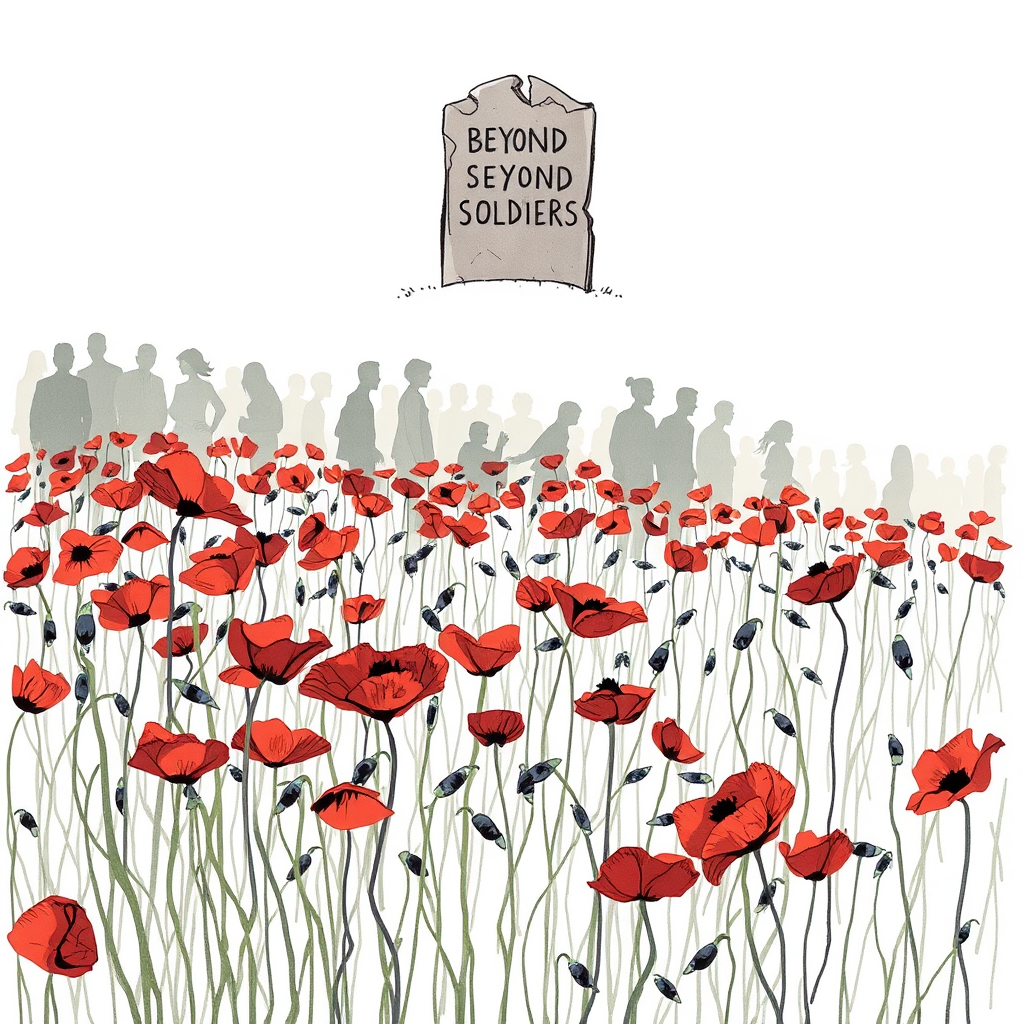Beyond Soldiers: Honoring War’s Forgotten Civilian Victims

The annual observance of Memorial Day, traditionally dedicated to honoring those who died serving in the U.S. armed forces, warrants a broadened scope. While recognizing the sacrifices of military personnel is paramount, a complete reckoning with the human cost of war demands acknowledgement of the vastly greater number of civilians who perish as a consequence of conflict. The origins of Memorial Day, initially Decoration Day in 1868, focused on commemorating Union soldiers lost during the Civil War – a conflict that, even then, claimed the lives of at least 50,000 civilians alongside over 600,000 soldiers. This disparity – the disproportionate suffering of non-combatants – has only intensified with the evolution of warfare.
The 20th century witnessed the horrifying rise of “total war,” where the lines between combatant and civilian blurred, and indiscriminate killing became commonplace. World War I saw roughly equal numbers of military and civilian deaths – approximately 10 million each. World War II, however, dramatically widened the gap, with nearly 15 million military deaths countered by an estimated 40 million civilian fatalities, culminating in the atomic bombings of Hiroshima and Nagasaki which overwhelmingly targeted and killed civilians.
While overall war deaths have declined since 1945, civilians continue to bear the brunt of modern conflicts. The Costs of War project at Brown University indicates that in post-9/11 conflicts, more civilians have likely been directly killed than fighters. This tragic pattern persists today. In Ukraine, as of March 31st, at least 12,910 civilians have been killed and over 31,000 injured. The situation in Gaza is particularly dire, with UN estimates placing the number of dead children, women, and elderly at over 27,000, and thousands of bodies remaining unidentified, compounded by a severe humanitarian crisis. The ongoing conflict in Sudan, largely overlooked by global media, has resulted in an estimated 150,000 war-related deaths and displaced 13 million people. Even Israel suffered nearly 700 civilian deaths in the October 7th attacks, with many more held hostage.
The current focus of Memorial Day, while respectful to service members, feels increasingly detached from the broader reality of war’s devastation. The United States, comparatively, has largely shielded its civilian population from the direct horrors of conflict, a privilege not shared by most of the world. This distance, coupled with the declining percentage of Americans serving in the military, creates a disconnect between the nation and the true cost of war.
Expanding the scope of Memorial Day to explicitly honor civilian victims isn’t about diminishing the sacrifices of soldiers; it’s about acknowledging the full spectrum of suffering caused by conflict. It’s a recognition that war, at its core, is a failure of humanity, and that the most tragic consequence is the loss of innocent lives. Establishing a day dedicated to remembering these victims – a new kind of Memorial Day – would be a powerful statement about our commitment to peace and a more just world. It’s a necessary step towards a more complete and honest reckoning with the enduring legacy of war.